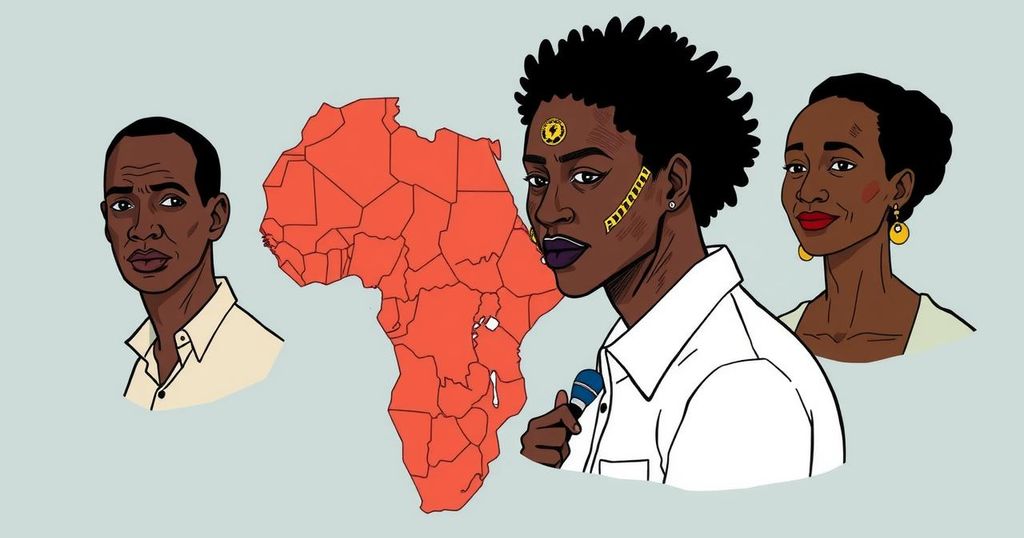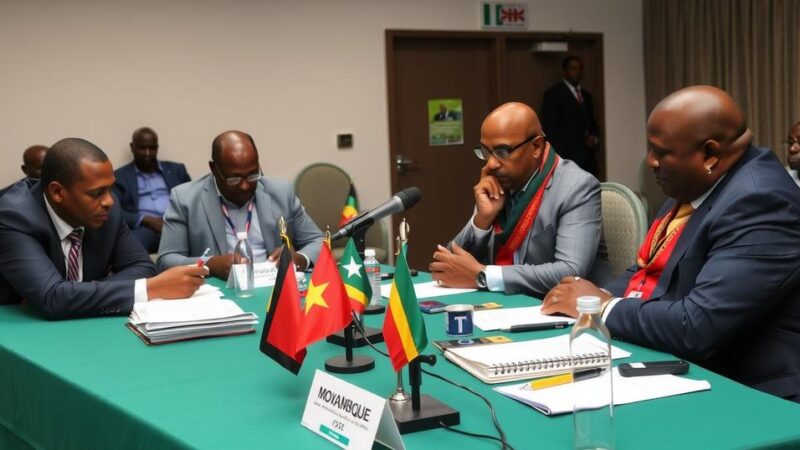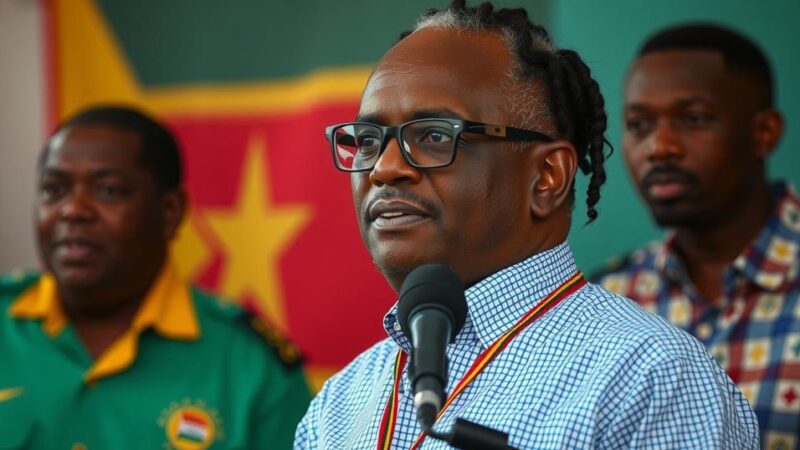In 2024, Africa saw elections with mixed outcomes; ruling parties retained power in Comoros and Mozambique but faced defeats in Botswana and Ghana. Notable events included Namibia’s first female president being elected and South Africa’s ANC failing to secure an outright majority. Elections in the Sahel were postponed due to increasing military control.
In 2024, African voters participated in various elections across more than a dozen nations, illustrating a noteworthy landscape of political change. In the Comoros, President Azali Assoumani secured a contentious fourth term amid violent opposition protests. Conversely, Mozambique’s ruling Frelimo party maintained its decades-long power despite challenges from opposition leaders who contested the election’s legitimacy. Namibia celebrated the historic election of its first female president, Netumbo Nandi-Ndaitwah, while Botswana witnessed a historic political shift with the election of opposition leader Duma Gideon Boko, marking a departure from nearly 60 years of one-party governance.
South Africa’s African National Congress (ANC) did not achieve an outright majority, resulting in the formation of a coalition government, a first since the end of apartheid. Voter dissatisfaction regarding service delivery and allegations of corruption featured prominently during the electoral discourse. In East Africa, President Paul Kagame of Rwanda retained power, yet his overwhelming victory raised concerns over the authenticity of electoral competition.
Western Africa saw John Mahama’s dramatic return to the presidency in Ghana, driven by public discontent over economic hardships. Elsewhere, Senegal’s Bassirou Diomaye Faye, at 44, became the youngest president, promising reform amidst a backdrop of recent political upheaval. Meanwhile, elections in the Sahel region faced delays, reinforcing concerns over military persistence in governance.
The elections in Africa during 2024 served as a litmus test for the political dynamics across the continent. Various countries experienced differing outcomes, reflecting both continued governance by historic parties and the emergence of new political leadership. The elections highlighted voter sentiments regarding economic stability, governance, and trust in political processes, as well as the challenges faced by opposition movements in authoritarian contexts. Political unrest and dissatisfaction towards long-standing regimes lingered in nations like Mozambique and Comoros, while countries such as Botswana and Ghana showcased movements towards democratic advancements. The overarching theme during these elections included unrest, potential for reform, and the ongoing struggle against autocratic rule.
The 2024 African elections revealed a complex tapestry of political outcomes, showcasing both resilience and revolt. While ruling parties in several countries retained control, significant defeats for incumbents, such as in Botswana and Ghana, indicated shifting political tides. The mixed results underscored citizens’ demand for reform and accountability, illuminating the challenges faced by established powers. As Africa forges ahead, the interplay between democratic aspirations and authoritarian tendencies remains a focal point for analysis and observation.
Original Source: www.voanews.com







